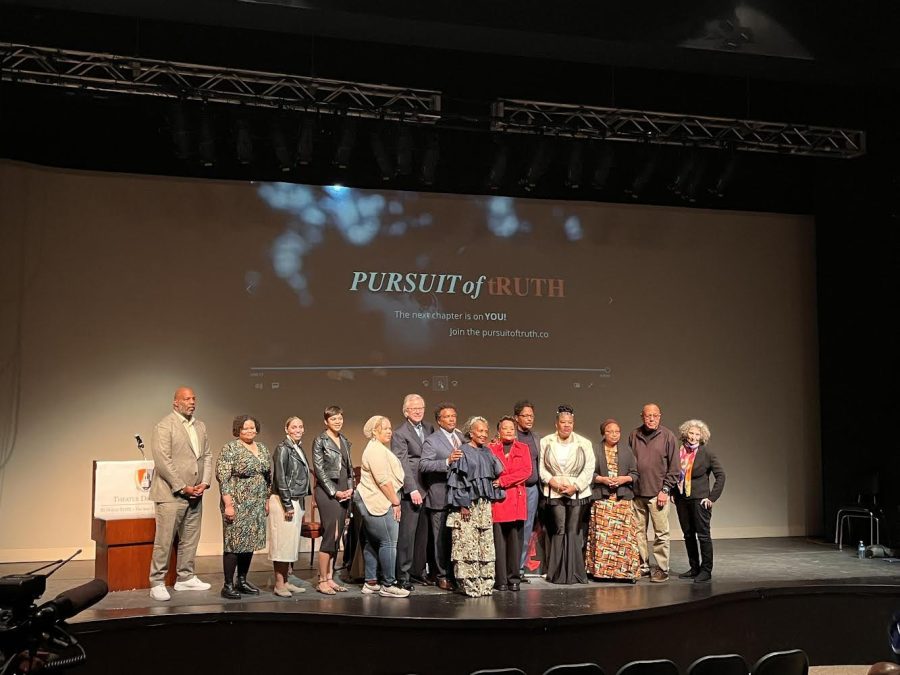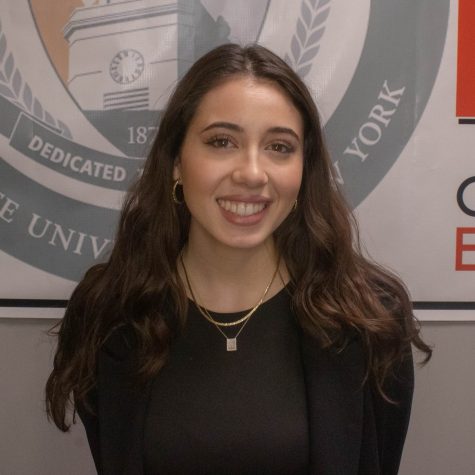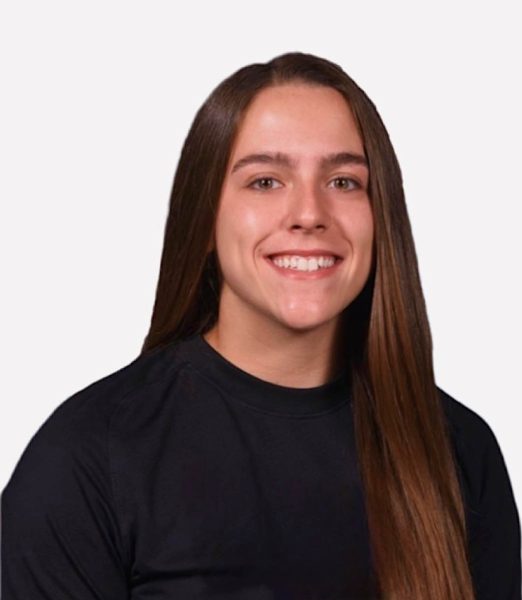Pursuit of tRuth: panel discussion at SUNY Buffalo State University
April 30, 2023
One year since the unthinkable tragedy at the Jefferson Avenue Tops in Buffalo, families and leaders have come together to discuss important issues.
The family of one of the beloved victims who lost their life, 86 year-year-old Ruth E. Whitfield, organized a panel discussion bringing speakers across the state to speak about the freedom of speech in correlation with horrific acts of crimes like the Tops shooting.
The Whitfield family thought that this three-day speaker series would entice conversations that are important and necessary in order to save the future generations from gun violence.
Anchor, Jericka Duncan of CBS News moderated the discussion and proposed questions that were related to the topic. With Special guest speakers Buffalo Mayor Byron Brown and Pastor Darius Pridgen.
Panelists on the last day of the series included the Whitfield family’s attorney and president of the National Civil Rights Trial Lawyers Association Benjamin Crump. In addition to, the dean of the Columbia Journalism School Jelani Cobb, special advisor on the prevention of genocide Alice Nderitu, chair of the National Board of Advisors for the University at Buffalo School of Law’s Advocacy Institute Terry Connors, Buffalo Public School superintendent Fatima Morell, professor of urban and regional planning at the University at Buffalo Henry Lewis Taylor Jr., and executive director of the New York Civil Liberties Union Donna Lieberman.
Each of these panelists had insightful words to share about where they think the environment of these ongoing hate crimes come from and how to prevent them. Understanding the root of evil that has stemmed from racism in our history has been difficult, but these leaders have tried to turn hate into strength one word at a time. Comparing and honoring different courses in history of African American leaders like Dr. Martin Luther King Jr. is just one example.
There is a common issue that has allowed leniency of hate and violence to surpass the safety of people in too many communities.
Attorney Benjamin Crump says that in his 25 years in courtrooms he has never seen a black person given life in prison a chance to say goodbye to their family like they allowed the 16-year-old white supremacist who committed a mass murdering.
“I’m heartbroken, not just because of the tragedy, but I am heartbroken at the thought that in America, if we don’t do everything that we can do, that there’s going to be more innocent people killed because of this international justification of discrimination,” Crump said. In a room full of strong emotions, the panelists opened the discussion up for questions and comments. A number of people spoke about their troubles in today’s society being African American, one crowd member even asked, “Are we at risk of heading into a racial war?”
This question raised the discussion of the First Amendment being an important aspect of the instigation of violence but also the overlooking of the Second Amendment, the right to keep and bear arms.
Executive director of the New York Civil Liberties Union Donna Lieberman shared her knowledge about this matter and even showed a sense of her anger about it as well.
“We have to, as a society, make sure that the first amendment is not thrown out in our effort, in our desperate need to deal with this hate speech. We have to be honest. We have to be honest that when speech threatens violence, when hate threatens violence not just after the fact we have to be able to do something about it,”
Audio: https://record.reverb.chat/s/CxKvWD3772h0AepN9Buk
Lieberman’s frustration translated into compassion for making the change that is needed and could be spoken for the whole community.
A point of focus in the discussion was the ways in which children are influenced by what they do and do not learn from their parents. The panel as a whole discussed the need for children to have these conversations about history and race to be able to better understand and appreciate those around them.
“We also have to deal with the inequities, the persuasive, perpetual inequities of education that allows black and brown children to be educated in a way and white children to be educated in a different type of way,” Buffalo Public Schools superintendent Fatima Morrell said.
One thing that the panel agreed on as a whole was that having these discussions at all is what is needed to make a difference in the safety of our society. Taking matters into the hands of the people working together to use their freedom of speech for the better and to push hate away.





